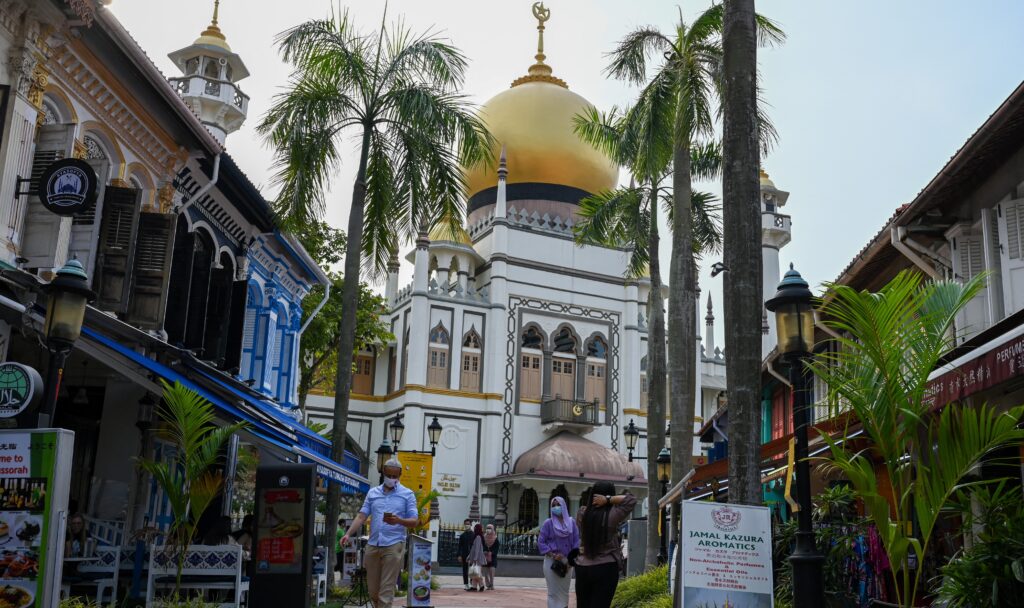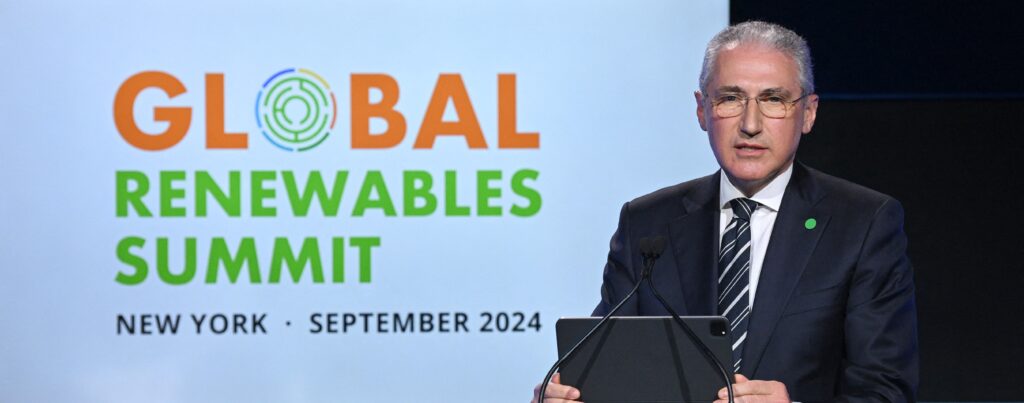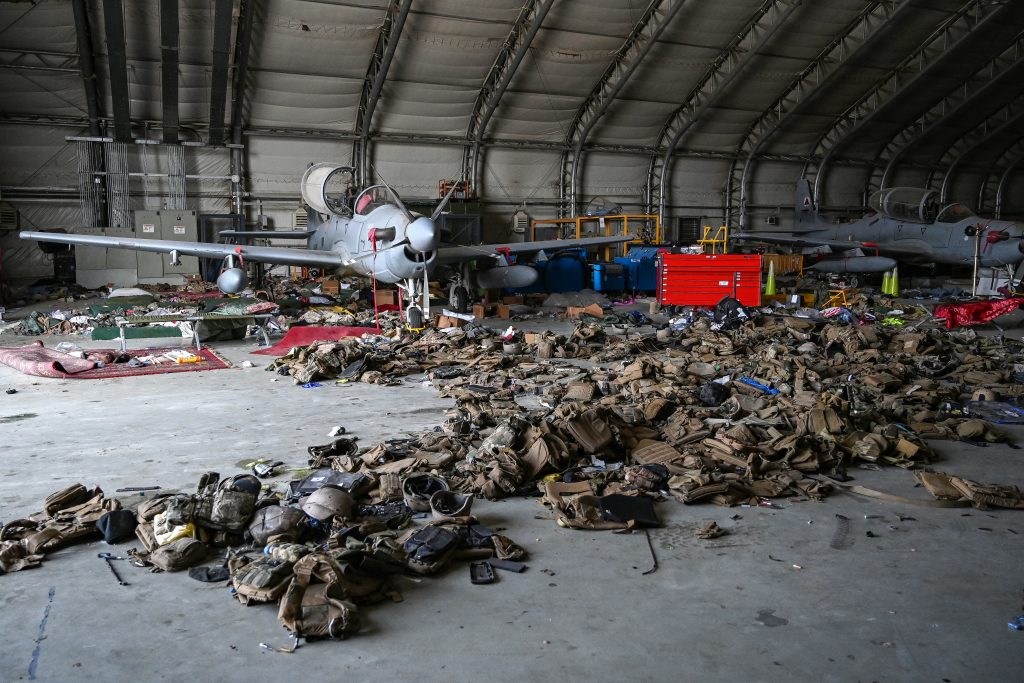
- 29 Oct 2020
ME 101 Lecture Series 2020
Throughout history, the Middle East has been locked in engagements with the West through crusades, wars, colonialism and terrorism. However, beyond the clichés and convenient facades lie many lesser known facets from economic transformation to climate change. This series of lectures will give you a more comprehensive overview of the region and its inevitable impacts on Singapore and the rest of globe.
A certificate of participation will be awarded to those who attain 70 per cent attendance at the ME 101 Lecture Series 2020.
The sessions are held from 5pm to 6.30pm and the registration link is accessible HERE.
Lecture Details
Series Introduction: Developments in the Middle East: Why Singapore should Care
by Bilahari Kausikan [Thursday, 13 August 2020]
Listen to the session here:
Watch the full session here:
Read the transcript of Mr Kausikan’s speech and the Q&A.
Lecture #01: Geopolitical Competition in the Middle East | The Gulf States – The Competition for Influence
by Abdullah Baabood [Thursday, 20 August 2020]
Despite the formation of the Gulf Cooperation Council (GCC), the Gulf region continues to be plagued by persistent historical antagonism conflated by ideological, ethnic and sectarian enmity. Regional rivalries and competition are not confined merely to between the Arab Gulf states and Iran but cover intra-GCC and beyond. Differing and competing development trajectories among these states, further aggravated by the aftermath of the Arab Spring, have added more fuel to already existing schisms. Global geopolitics and the perplexing policies of the United States, particularly its declared strategy of ‘pivot’ towards Asia, nudged the Gulf actors under the fear of abandonment by their security guarantor and encirclement by Iran to become more active and take matters into their own hands. New leadership perceptions, competing regional orders and the increasing role of Turkey further accelerated the trend and led to the intensification of the rivalry and conflict well beyond the Gulf region. Mistrust, misperception and a lack of regional mechanism could lead to an escalation of competition but the consequences of Covid-19 could ultimately moderate it.
Due to a technical glitch, audio and video recordings are not available. Read the event summary here.
Lecture #02: Geopolitical Competition in the Middle East | Iran, Turkey, Russia – Allies, Foes or Marriages of Convenience
by Asif Shuja and Serkan Yolacan [Thursday, 27 August 2020]
Turkey, Iran, and Russia are three old neighbors with centuries-long imperial histories, and they have remerged in the twenty-first century as polities with expansionist agendas. The global proliferation of transnational networks since the 1990s and the unraveling of the Middle East since the Iraq War (2003-2011) have created for them opportunities for cultural and economic expansion as well as new security threats to navigate. Especially since the Arab Uprisings that produced a quagmire in Syria and a major diplomatic crisis in the Gulf, the three powers have become major players in the Middle East and North Africa, variously involved in the ongoing conflicts as partners and foes. In this lecture, two MEI fellows, Serkan Yolaçan and Asif Shuja will analyze the visions and capabilities of these three countries, particularly Turkey and Iran. Among the topics they will explore are their friction-ridden cooperation with Russia and their political reach into Asia via Qatar, Pakistan, and Malaysia.
Listen to the session here:
Watch the full session here:
Read the summary here.
Lecture #03: Geopolitical Competition in the Middle East | China – Can the Dragon Tame the Middle East or will the Middle East Tame the Dragon?
by Alessandro Arduino [Thursday, 3 September 2020]
During the last decade, China has increased its economic and political reach in the Middle East. China’s relationship with the Middle East does not revolve exclusively on energy. While the Belt and Road Initiative (BRI) is intended to increase trade, communication and infrastructure development, Beijing is still not interested in getting entangled in the Middle East and North Africa quagmire. And even though America’s security umbrella is shifting, China is not eager to increase its security footprint as Beijing aims to support the status quo.
China growing geopolitical influence in the region is still characterised by a very cautious approach. Nevertheless, its security needs related to the protection of personnel and infrastructures along the BRI as well as its national energy security along the maritime routes is forcing Beijing to take a more active stance. Beijing has thus far balanced its relationship with the United States, Israel, the Gulf states and its growing interests in Iran adroitly, valuing stability and non-interference above all else.
Beijing’s geopolitical competition in the Middle East is also related to the race for 5G infrastructure implementation and space cooperation. The Middle Eastern countries’ expectations of China however have not always reflected the country’s actual capabilities and drives. So far, the Middle Eastern states are conscious of Chinese limits as security provider but at the same time, they consider the need for Chinese capital and infrastructure investments in a post Covid-19 world the new normal.
Listen to the full session here:
Watch the full session here:
Read the event summary here.
Lecture #04: Geopolitical Competition in the Middle East | The US and its Allies – Boots on the Ground or Off Platforms
by Tommy Steiner [Thursday, 10 September 2020]
The United States became a strategic player in the Middle East only in the second half of the 1950s as its reliance on Persian Gulf oil increased and it realized that it could no longer rely on Britain to protect its interests in the region. This pattern – a combination of interests and balance of power calculations – would shape the evolution of American policies in the Middle East ever since. Even America’s most substantial ties in the region – its relations with Israel – became “special” only after Israel was able to “prove” it was a strategic asset.
Notably, the United States “won” the Cold War in the Middle East early on (in the 1970s), but went on to pay a premium price in terms of strategic entrapments (the energy crisis, Iran hostage crisis, etc.). Following the end of the Cold War, the Middle East was yet another arena for demonstrating America’s “hegemonic moment”, but 9/11 reshaped its outlook. For the United States, regional under-development became a threat to national security and it sought to “fix” the Middle East. However, the huge toll and poor track record – combined with the 2008 economic crisis – decreased America’s strategic ambitions for the region, as it sought to divert attention to Asia and contend with the rise of an increasingly assertive, and now aggressive, China.
No longer dependent on Middle East oil and rid of grand ambitions of transforming the region, America’s strategic footprint is diminishing, and its allies and adversaries alike are adjusting their policies accordingly. Nevertheless, two main factors will probably keep the U.S. regionally engaged, at least to some extent: (a) the growing presence and influence of its great power competitors – China and Russia – across the region; and (b) the enduring geopolitical relevance of the Middle East on the periphery of the Indo-Pacific (energy and maritime security; source of terror; nuclear proliferation). A combination of these factors might actually rekindle, even if reluctantly, America’s strategic appetite in the Middle East before too long.
Listen to the full session here:
Watch the full session here:
Read the event summary here.
Lecture #05: Geopolitical Competition in the Middle East | Israel – More than Just Palestine
by Kevjn Lim [Thursday, 17 September 2020]
Israel’s regional geopolitical position has evolved dramatically over the decades. Where it once waged wars of survival against combined Arab armies, it now cooperates with many of them, and has in fact formed a de facto front of sorts with major Sunni governments, particularly in the Persian Gulf against a heavily-Shia “Axis of Resistance” fronted by Iran. What are the current axes of cooperation and competition, against the simmering backdrop of an elusive Israeli–Palestinian peace plan?
A key Israeli focus over much of the past decade has been in the context of the civil war across the northeastern border in Syria, where Iran seeks to entrench itself and Russia continues to acquire influence. How has Israel’s military and security doctrine changed to reflect its current kinetic engagement in Syria, or for that matter, against Lebanese Hezbollah, especially in Iraq, and potentially even farther afield? Where does Turkey stand, 10 years after the Mavi Marmara incident precipitated a decline in ties with Israel? How is Israel positioning itself in the relatively new context of Mediterranean gas politics, where it is aligned with Greece, Cyprus and Egypt against Turkey and its Cypriot subsidiary? Finally, how will the United States’ gradual abdication of responsibility in the region, combined with China’s increasing presence, influence the way Israel competes and cooperates with other regional states?
Listen to the full session here:
Watch the full session here:
Read the event summary here.
Lecture #06: The Politics of Economic Reform
by Rana Karadsheh-Haddad [Thursday, 24 September 2020]
After focusing on the geopolitical aspects of the region during the first six lectures, we will now turn to another important aspect, particularly for Singapore: The economic transformation being undertaken by many countries in the region, particularly the oil-producing ones. This effort has been underway for several years now, but has advanced in fits and starts, despite ambitious plans to diversify away from hydrocarbons, such as Saudi Arabia’s Vision 2030. The Covid-19 pandemic and global oil price collapse have made matters worse, and hard-won gains may be reversed as a result.
Ms Rana Karadsheh will discuss the future of the Middle East’s economic transformation programmes and the challenges they face, as well as their potential. Ms Karadsheh is the regional industry director, Manufacturing, Agribusiness and Services for Asia and the Pacific at the International Finance Corporation, which is part of the World Bank group. IFC is the largest global development institution focused on the private sector in emerging markets. Its portfolio in the region totals over US$5 billion and spans 55 active advisory projects.
Listen to the full session here:
Watch the full session here:
Read the event summary here.
Lecture #07: The Challenge Beyond Economics | Whither Oil and Gas?
by Philippe Rose [Thursday, 01 October 2020]
Gulf countries have enjoyed a dominant position over the world’s crude oil production and export for decades. However, major structural changes are under way. After a century of growth, global primary energy demand is set to plateau. Furthermore, regional electricity demand is surging by 80 per cent, with power generation absorbing an ever-increasing share of the domestic oil and gas production. With renewable energy costs rapidly dropping below those of conventional generation, how is the energy transition impacting energy politics in the Gulf? Is this transition helping the region break free from its reliance on oil and gas? Or is the region’s stability at risk from the dwindling importance of their main export on which they have been fiscally dependent? To what extent are their institutions equipped to manage these changes? What impact has the global pandemic had on these trends? How are shifts in regional trade dynamics reshaping alliances?
Audio and video recording are not available for this lecture.
Read the summary here.
Lecture #08: The Challenge Beyond Economics | Climate Change in a Desert
by Aisha Al-Sarihi [Thursday, 08 October 2020]
Climate scientists show us that ‘warming of the climate system is unequivocal, and since the 1950s, many of the observed changes are unprecedented over decades to millennia’: the atmosphere and ocean have warmed, the amount of snow and ice have diminished, the sea level has risen, and extreme weather events have become more frequent than before.
The Gulf Arab states – characterised by a fragile desert environment and high reliance on oil export revenues as a main source of income – are particularly vulnerable to not only the adverse impacts of climate change but also the to the outcomes of global climate change mitigation measures aiming to keep climate change at a (relatively) safe level.
This lecture will focus on four main themes: (i) how climate change contributes in exacerbating readily existing challenges of energy security, food and water security, economic stability, and in some cases transboundary political conflicts; (ii) what is the current state of climate action (governance, policies and regulations) across the Gulf Arab states, both in terms of mitigation and adaptation; and (iii) what are the advantages of enhanced climate action; and (iv) what else can be done to strive towards effective climate action.
Listen to the session here:
Watch the full session here:
Read the event summary here.
Lecture #09: The Challenge Beyond Economics | Women and Youth – A Force for Change
by Alanoud Al-Sharekh [Thursday, 15 October 2020]
Youths make up 16 per cent of the world’s population today. Over the next 30 years, the youth population is expected to continue to grow in some regions like the Arab Middle East (UN 2019), which will in turn change the demography of the region. In this lecture, we will discuss how these demographic shifts and political instability in the region are upturning social expectations, especially for women. They present challenges and opportunities, both in terms of women’s and youth’s socio-economic expectations, and to current sociopolitical norms, especially as the states’ authority and familial bonds weaken, and guidance increasingly comes from social media and other independent external stakeholders. Disrupted “visions” and changing labour force demands are intersecting with painful political changes in the aftermath of the Arab Spring, and will continue to impact the uncertain future of youth and gender politics of the Middle East.
Listen to the session here:
Watch the full session here:
Read the summary here.
Lecture #10: Religion and Political Islam in the Middle East and Its Impact on Our Region
by Norshahril bin Saat [Thursday, 22 October 2020]
9/11 has refocused analysis of Islam in Southeast Asia towards the security lens. Concerns about terrorism and radicalism dominate academic and journalistic writings, creating many academic positions in universities and think-tanks, and promoting Muslim theologians as the spokespersons for “moderate” Islam. Examination of other equally pressing concerns which can also impede progress and development of Muslims, such as non-violent extremism and quality religious education, are neglected. Lately, contextualization of Islam has become an area of interest. Malays are perceived to import Middle Eastern cultures, practices, and theology at the expense of local ones. Policy makers and academics refer to this process as “Arabization” of Southeast Asian Islam. Some consider this “Talibanization” referring to borrowing of radical ideas from the Talibans in war-torn Afghanistan.
This lecture examines critically dominant images of Southeast Asian Islam focussing on three countries, Singapore, Indonesia and Malaysia. In highlight interaction between the region and Middle East. Applying the socio-historical approach, the lecture makes three arguments: (1) while Islam originated from Middle East, the type of Islam brought to Southeast Asia was predominantly the Sufi type; (2) the heterogeneity of Islam in the Middle East also shapes Southeast Asia differently, depending on which era is discussed, and the country of focus; and (3) Islam and politics take many forms in Southeast Asia, and they adopt and adapt to global and local dynamics, such as capitalism, feudalism, socialism, and revivalism. The impact of Middle East movements Sufism, Shiism, Muslim Brotherhood, Salafi-Wahhabism, Hizmet and reformism will also be discussed.
Listen to the session here:
Watch the full session here:
Read the summary here.
Closing Session: The Centrality of Central Asia
by Alessandro Arduino [Thursday, 29 October 2020]
Central Asia, located at the heart of Eurasia, is a region of particular importance. With a history of primarily Russian influence, it is increasingly a destination for Chinese investment and a critical bridging point not only between China, Russia and Europe’s East–West axis but also in the North–South axis, between South Asia and the Middle East.
There are significant opportunities within the economies of Central Asia. The region faces changes in the international geopolitical order and its socioeconomic transitions, as well as in energy and security relationships. While Kazakhstan, the Kyrgyz Republic, Tajikistan, Turkmenistan and Uzbekistan each pursue its own individual development paths, they share similar challenges concerning national identity, close proximity to major powers, cross-border resource management, underinvestment in sustainable infrastructure, as well as the challenges of economic diversification, job creation and growth. Looming terrorist threats from Afghanistan and returning foreign fighters from the Middle East and North Africa region complete the threat matrix.
Recent important advances in Central Asian regional cooperation mechanisms and economic growth have attracted the interest of a new wave of international investors. Since 2013, the Belt and Road Initiative, and its associated growth of Chinese investments in Central Asia, has opened up new opportunities as well as risks. Chinese investments are complemented by Saudi Arabia, the European Union and the Association of Southeast Asian Nations.
Central Asia countries are aiming to return to a place of historic relevance as a trading hub, a position that they held firmly during the time of the ancient Silk Road.
Listen to the full session here:
Watch the full session here:
Read the event summary here.




